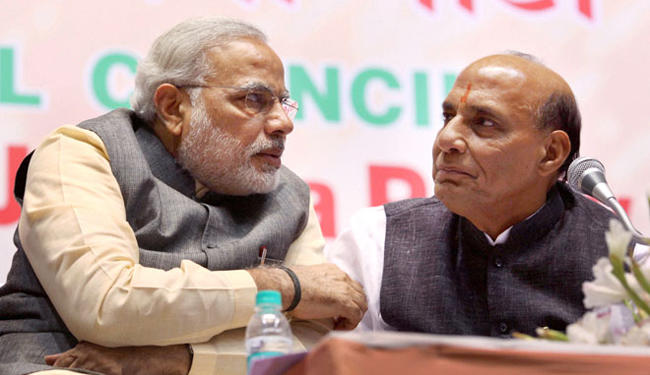In the first defense deal of the second term, Modi government has decided to purchase 100 Israel made SPICE (Smart, Precise Impact, Cost-Effective) bombs for Indian Air Force. The SPICE bombs were used by the IAF to carry out Balakot airstrike in which more than 300 Jaish-e-Mohammed terrorists were killed. This is the first defense deal of Modi government.
The defense deal, and the timing of it is significant for two reasons.
The first is that India would carry out further air strikes in Pakistani territory (Balakot is in Mansehra District in the Khyber Pakhtunkhwa province of Pakistan) if the need arises. Before Balakot, India carried out such strikes only on terror camps in Pak Occupied Kashmir which India considers part of Indian state of Jammu & Kashmir.
“A contract for procuring over 100 SPICE bombs with Mark 84 warheads was signed with Israel under emergency provisions as per which the deliveries would be done in three months’ time,” according to a senior government official. The SPICE bombs are the ammunition India needs to carry out targeted attacks against terrorist camps deep inside the territory of Pakistan. The SPICE bombs did not destroy the whole building of terror camp in Balakot instead it penetrated the concrete rooftop and exploded inside the building, effectively killing the terrorists inside without destroying the building. “The IAF is now going to acquire the bunker buster or the building destroyer version with Mark 84 warhead which can decimate targeted buildings,” according to a source.
Indian Air force used Mirage 2000 fighter jets and SPICE-2000 bombs to carryout Balakot Airstrike. SPICE-2000 is not just a bomb but works as a ‘guidance kit’ with a warhead attached to it. The bomb has a standoff range of 60 kilometers and it uses warheads such as MK-84, BLU-109, APW and RAP-2000.
The second significant aspect of this deal is that it indicates India’s deepening defense tied with Israel in the second term. Israel has considered India as ‘natural ally’ given the similarities in history, culture, and enemies but the previous Congress governments were not very keen on reciprocating Israel’s friendly gestures. The baggage of secularism and fear of being sidelined by the Islamic world was the reason behind Congress’ halfhearted response. However, in the last five years, the Modi government has been able to improve relations with Israel as well as with the Islamic world simultaneously.
The first state visit by Israeli prime minister to India was under Atal Bihari Vajpayee government when Ariel Sharon visited and promised further consolidation of ties. The visit was criticized by left-liberal establishment of the country and they organized the protest in condemnation of the visit. In the next 10 years of Congress government, Prime Minister Manmohan Singh did not visit Israel and neither invited Israeli head of state to India. The ties only improved in after Modi won the 2014 general election with full majority and became prime minister of India.
In July 2017, PM Modi essentially ‘dehyphenated’ India’s relationship with Israel-Palestine and become first even Indian Prime Minister on a state visit to Israel. The visit was a notable exception from historical ‘balancing act’ of a mandatory visit to Palestine whenever an India official visited Israel. In January 2018, Benjamin Netanyahu became the second prime minister on official visit to India since Ariel Sharon’s historic tour to the country in 2003.
The interfaith relation between Hinduism and Judaism is the backbone of Indo-Israeli ties. “Jews have lived in India for over 2,000 years and have never been discriminated against. This is something unparalleled in human history,” said Rabbi Metzger. Thousands of Jews visit Himalayan states every year as tourists.
The deeper defense, security, economic, science and technology and cultural ties with Israel would be mutually beneficial. With the purchase of SPICE bombs, it is very clear that India would carry preemptive strikes in Pakistani territory in future if required and the Indo-Israeli ties would be given priority in the second term.

























